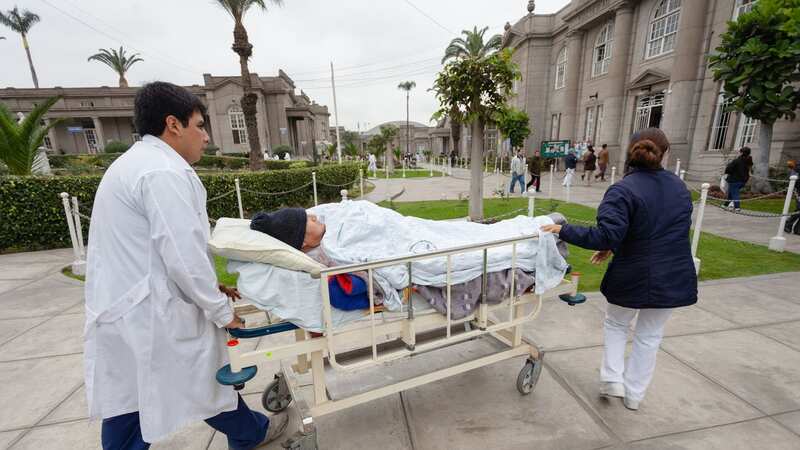Health emergency declared over horror disease leaving sufferers paralysed

A health emergency has been declared in a South American country after a strange paralysis-causing illness has infected more than 231 people and killed four since the start of this year. Guillain-Barré Syndrome (GBS) has gripped Peru with more than half the cases occurring in a narrow five-week span from early June to mid-July.
GBS is a rare condition in which a person’s immune system attacks the peripheral nerves, which can result in muscle weakness, loss of sensation in the limbs and problems swallowing or breathing. Symptoms typically last a few weeks, with most individuals recovering without long-term, severe neurological complications.
Patient samples taken by Peruvian health officials during the five-week peak found a bacteria common in contaminated food and water, Campylobacter jejuni, which was also deemed responsible for a similar GBS outbreak in Peru four years ago.
Symptoms
People should keep an eye out for weakness or tingling sensations which usually start in the legs and can spread to the arms and face as the first sign of infection. Most people recover fully from even the most severe cases of Guillain-Barré syndrome, although some continue to experience weakness. And it is not transmitted between people in the same way that a viral flu or bacteria would.
The World Health Organisation has said: "Guillain-Barré syndrome is potentially life-threatening. GBS patients should be hospitalized so that they can be monitored closely. Supportive care includes monitoring of breathing, heartbeat and blood pressure.
 Foreign Office updates Peru advice as Machu Picchu reopens to tourists
Foreign Office updates Peru advice as Machu Picchu reopens to tourists
"In cases where a person's ability to breathe is impaired, he or she is usually put on a ventilator. All GBS patients should be monitored for complications, which can include abnormal heart beat, infections, blood clots, and high or low blood pressure.
"There is no known cure for GBS, but treatments can help improve symptoms of GBS and shorten its duration. Given the autoimmune nature of the disease, its acute phase is typically treated with immunotherapy, such as plasma exchange to remove antibodies from the blood or intravenous immunoglobulin. It is most often beneficial when initiated 7 to 14 days after symptoms appear.
"In cases where muscle weakness persists after the acute phase of the illness, patients may require rehabilitation services to strengthen their muscles and restore movement."
Outbreak
The highest number of cases, as of two weeks ago, were reported in the capital Lima and all ages have been affected with the average age of patients being 41, according to the Pan American Health Organisation. While GBS cannot be spread from person to person, experts say it’s essential to focus on your hand hygiene and food choices if you’re travelling to areas with Guillain-Barré caused by bacterial infections.
Health officials sampled some of the patients who were confirmed to have GBS and found that in 22 samples taken, 14 were positive for the bacteria Campylobacter jejuni – which causes gastroenteritis and is one of the most common symptoms.
The country has also been battling a massive Dengue fever outbreak that has reportedly sickened at least 150,000. But that hasn’t been linked to the Guillain-Barré syndrome. The World Health Organisation said: "To date, the potential cause of the unexpected GBS incidence remains under investigation."
Read more similar news:
Comments:
comments powered by Disqus

































